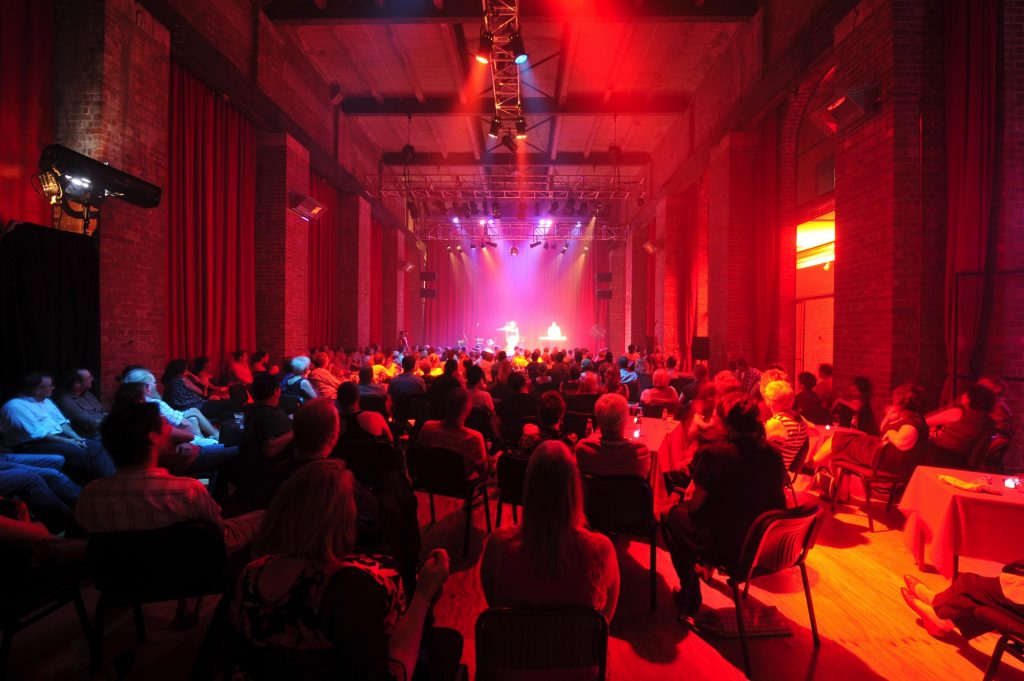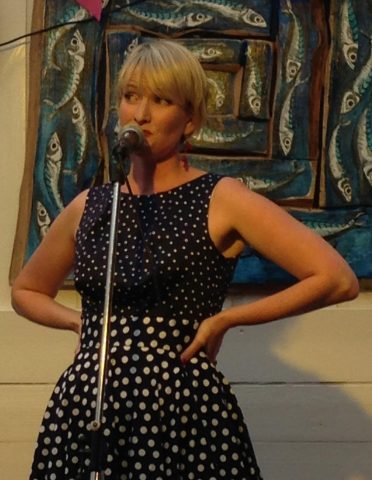5 things Cabaret can teach us about presenting at work

One of the things I love about working at Claremont is the range of interests of the people working here. We’ve got tap dancers, marathon runners and bread makers among us, so someone’s usually got an entertaining weekend tale to liven up our Monday mornings.
I have been performing on stage for almost as long as I’ve worked in behaviour change. After wrapping up in the office on Fridays I can usually be found wearing one of the many hats of a cabaret performer; for me they come in musical comedian, singer, compère and improviser.

I think performing on stage has led to me absolutely LOVING giving presentations at work. I prepare for them in much the same way I prepare for a one-woman show – write the content, try it out, amend, rehearse, amend, rehearse, tech run etc. Preparation is obviously crucially important, but what happens once the audience is in and the lights go up?
Everything changes.
All of a sudden it’s about them. Are they listening? Are they following? Do they want to know more?
In my experience, whether on stage or behind a lectern, the audience buys into you and most importantly stays with you if you:
1. Show them who you are
I grew up in rural Wales, I’m single and I moved to London for some excitement. There are three facts in that sentence, but you might have already drawn some conclusions about what kind of person I am, or know someone like me, which means you’re already starting to colour the picture in yourself. Audiences instinctively fill in gaps, make connections and relate to what they know, so you have to draw the right outline for them from the very beginning.

2. Make ‘em laugh
It’s often said that we don’t remember what people say; we remember how they made us feel. If you want to give an audience the best chance of remembering what you said, you need to make them feel something and give them a reason to care about you. In my experience pulling a heartstring is easier if you’ve tickled a funny bone first, so bringing in humour is a good first step towards developing the rapport required to have a lasting impact.
3. Be in the here and now
If a glass smashes at the back of the room, comment on it. You’re asking your audience to be with you for the duration of your performance – so be with them for their experience of it.
4. Don’t just expect the unexpected – welcome it
When I’m on stage I might forget a line, the sound might fail or the lights go out – neither humans nor technology are infallible. My job is simple – stay on track. Your audience will only relax if they feel like you’re in control and they trust you to stay in control – if it doesn’t faze you, it won’t faze them.

5. Acknowledge them and how important they are to you
Look people in the eye and mean it when you say thank you for coming, because as my acting coach once told me “Emily, without an audience you’re just a girl in a room talking to yourself.”
When you slap on a job title like ‘Consultant’ and have 30 Power Point slides to present to groups of ‘Clients’ or ‘Stakeholders’, it’s quite easy to forget that consultants, clients and stakeholders are people too. Who probably have feelings, might like to laugh and maybe want to feel acknowledged, appreciated and valued.
So if you can, put a bit of yourself into your presentation. You might even end up with a lively tale to share on a Monday morning.